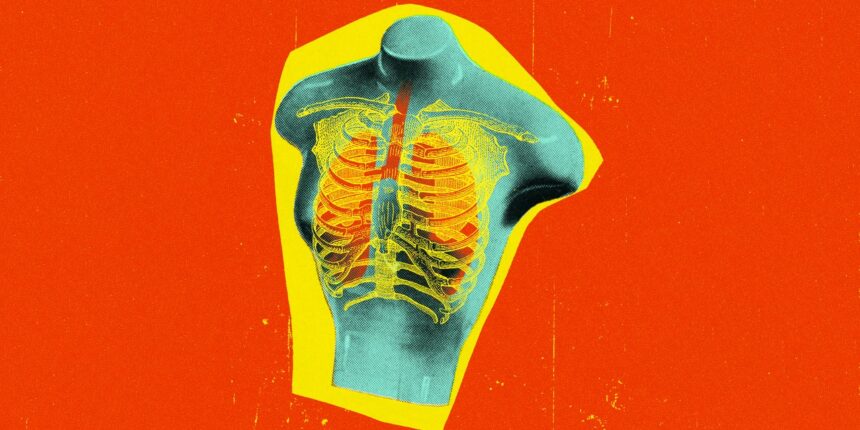Chest pain is one of those symptoms that immediately makes you think the worst: that maybe you’re having a heart attack. But there are a lot of reasons you may feel discomfort, pressure, or tightness in your chest that have nothing to do with your ticker. In fact, half of the people that cardiologists see for chest pain have no heart problems at all.
“Lots of people experience non-cardiac chest pain,” Jeffrey Huffman, MD, an associate professor of psychiatry at Harvard Medical School and the director of the cardiac psychiatry research program at the Massachusetts General Hospital (MGH), tells SELF. “Being told you’re not having a heart attack is great [but] it doesn’t make your chest pain go away.” In other words, you might have to do some detective work with your doctor, Dr. Huffman says, which will provide some clues that can guide you to treatment options for relief.
So next time your chest feels a little weird, try not to automatically assume the worst. Here are five causes of chest pain that are totally unrelated to your heart.
1. You hurt the cartilage or muscles in your chest.
Injuries to the chest (think car accidents and falls) can cause serious pain. But even regular ol’ muscle strains, which can happen after lifting heavy objects, exercising without a proper warm-up, or sitting with poor posture all day, can be a problem too. Another chest-related injury you may not have heard about: costochondritis. It occurs when the cartilage that connects your rib bones to your breastbone becomes inflamed, Timothy Mott, MD, a family medicine physician at the South Baldwin Regional Medical Center in Alabama, tells SELF. Up to one third of people who see a doctor for chest pain actually have this condition, which is slightly more common in women, and can happen after intense exercise, respiratory infections, certain types of arthritis, coughing or vomiting too hard, or complications from surgery.
But one super-important thing to note: These types of chest injuries don’t usually cause shortness of breath, fever, or rash. So if you’re experiencing any of these symptoms along with your chest discomfort, see a doc, stat, because a more serious condition may be to blame.
2. You have acid reflux.
If you’ve ever laid down shortly after eating a hefty dinner and immediately felt a fiery sensation, then you know acid reflux can also cause chest pain. This happens when a muscular valve at the bottom of your esophagus doesn’t function properly and allows your very acidic stomach contents to migrate upward, hence that awful burning pain in your chest, a.k.a. heartburn, Allon Kahn, MD, a gastroenterologist with the Mayo Clinic in Arizona, tells SELF. If your symptoms are long-lasting and severe, you likely have gastroesophageal reflux disease (GERD).
Read the full article here



